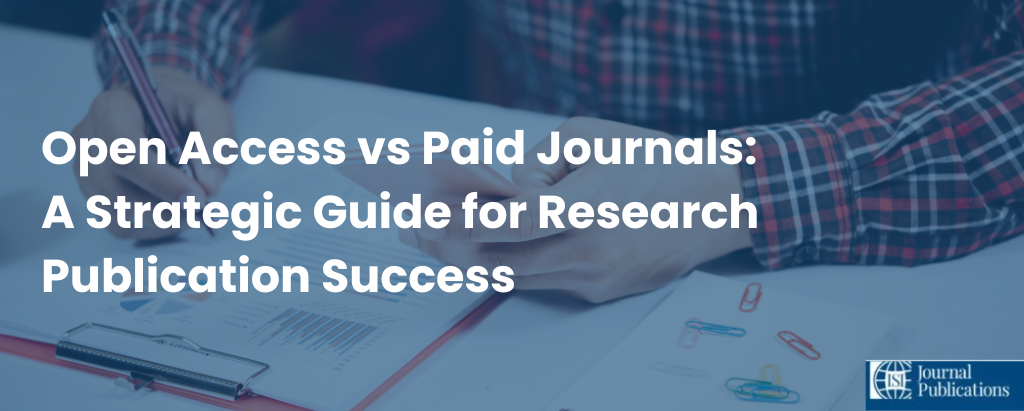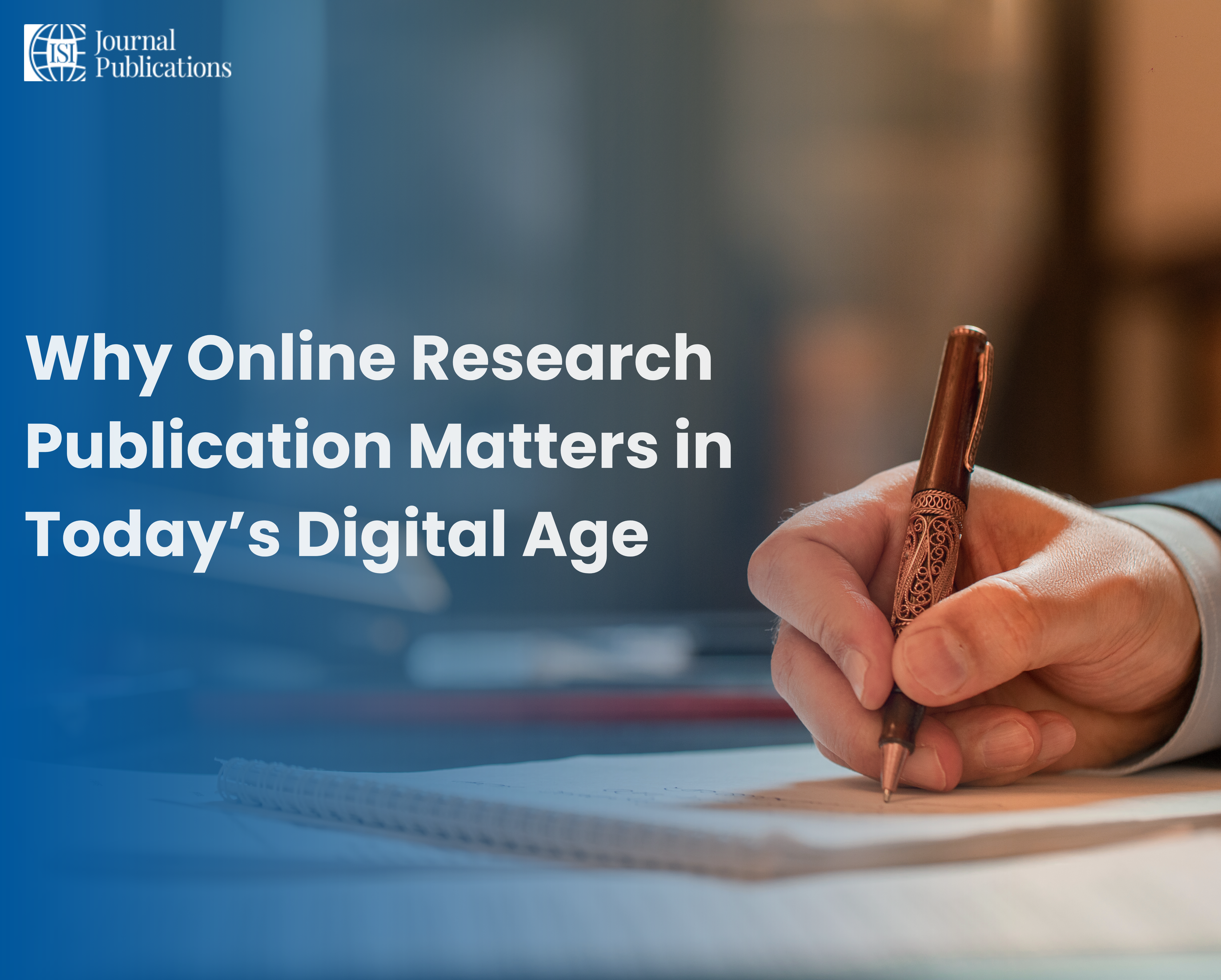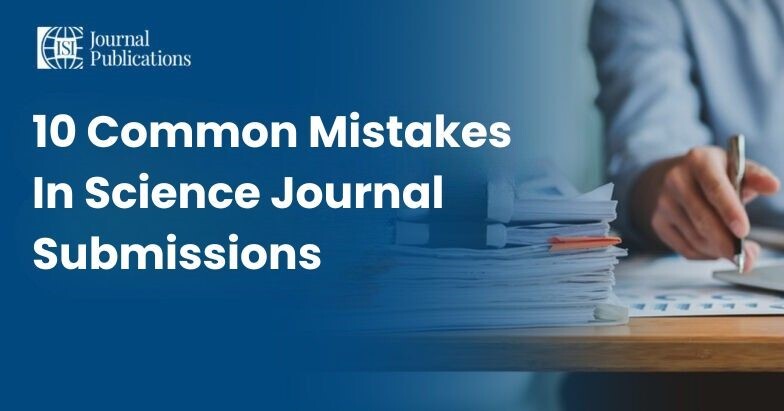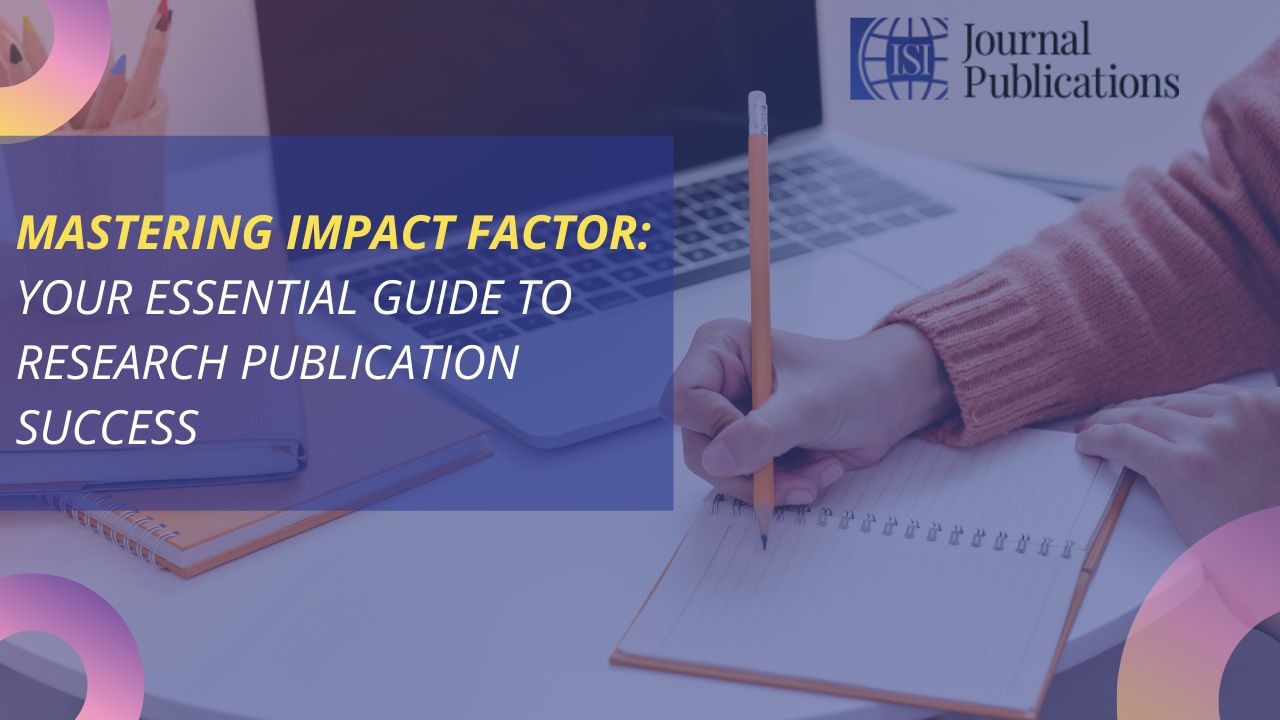Are you searching for the best online journal for research publication in 2025? Whether you are an experienced academic or a first-time researcher, the journal you choose can make or break your research visibility, credibility, and long-term impact. The right journal can help you gain recognition, boost your citations, and connect your work with the global scholarly community.
This comprehensive guide covers everything you need to know about UGC CARE list journals, Scopus indexed journals, peer-reviewed and free journals for online research publication, and paid options—helping you publish smarter and faster.
Table of Contents:
- Why Journal Selection Matters for Research Publication
- Understanding Peer Review, Indexing, and Impact Factor
- UGC CARE List, Scopus & WoS: What Researchers Must Know
- How to Identify the Best Online Journals for Your Research?
- Top 21 Online Journals and Platforms for Research Publication in 2025
- How to Avoid Predatory Journals
- Frequently Asked Questions About Research Journal Publishing
- Common Mistakes Researchers Make When Selecting Journals
- Final Tips for Successful Research Publication
- SEO Suggestions: Meta Tags, Internal Linking, and More
Why Journal Selection Matters for Research Publication
Choosing a credible, indexed journal is critical for any research scholar or academician.
Publishing in a reputable, peer-reviewed, and indexed journal:
- Boosts your academic profile and credibility
- Increases citation potential and research impact
- Ensures your findings reach the right audience
- Helps in career advancement, academic promotions, and grant applications
Journals listed in the UGC CARE list, Scopus, Web of Science (WoS), or PubMed carry significant academic weight.
Publishing in low-quality or predatory journals can harm your reputation and waste your time and money.
Real Researcher Pain Points
- Fear of Rejection After Long Review Periods:
Many researchers wait for 3–6 months, only to face rejection—often because the journal was a poor fit. - Wasting Money on Paid Journals Without Recognition:
Some paid journals charge high fees but lack proper indexing, damaging your academic profile. - Falling Prey to Predatory Journals:
Predatory journals promise instant publication and charge fees but offer no peer review or academic value.
Understanding Peer Review, Indexing, and Impact Factor
Peer-Reviewed Journals vs Non-Peer-Reviewed Journals:
Peer-reviewed journals have a structured process where experts evaluate submissions. This ensures:
- High quality and originality
- Accurate, reliable, and unbiased research
- Increased trust and academic recognition
Non-peer-reviewed journals lack this scrutiny and may publish low-quality or biased content.
What is Journal Indexing?
Journal indexing means a journal is included in a recognized database such as:
- Scopus
- Web of Science (WoS)
- PubMed
- Directory of Open Access Journals (DOAJ)
- Indian Citation Index (ICI)
Indexed journals are validated for quality and have greater global visibility.
What is Impact Factor?
The Impact Factor (IF) measures the average number of citations per article in a journal.
A higher IF usually means greater influence and academic prestige.
UGC CARE List, Scopus & WoS: What Researchers Must Know
What is the UGC CARE List?
The UGC CARE List is a list of journals recognized by India’s University Grants Commission (UGC).
Publishing in UGC CARE journals is essential for Indian academics and is often required for PhD, academic promotions, and grant eligibility.
Difference Between UGC CARE List Group I and Group II
- Group I: Journals recommended by universities and validated by UGC through rigorous screening.
- Group II: Journals indexed in globally recognized databases like Scopus or Web of Science.
What is Scopus?
Scopus is an international, multidisciplinary citation database covering thousands of scholarly journals.
Scopus-indexed journals are globally recognized for their strict quality standards.
What is Web of Science (WoS)?
Web of Science is another highly respected global citation database.
Journals indexed in WoS are considered top-tier in academic publishing.
How to Verify if a Journal is UGC Approved or Indexed
- Use the UGC CARE Portal to search by ISSN or title.
- Check the Scopus Journal List.
- Visit the Web of Science Master Journal List.
- Look for the journal’s indexing details on its official website (but always cross-check!).
How to Identify the Best Online Journals for Your Research
Choosing the ideal journal is a strategic decision.
Follow these steps to maximize your chances of successful and meaningful publication:
1. Identify Your Research Domain
Find journals that publish in your specific area (e.g., engineering, medical sciences, management, social sciences, arts, humanities).
Tip:
See what journals are cited by recent papers in your field.
2. Understand Submission Guidelines
Each journal has its own rules for:
- Manuscript structure
- Formatting style (APA, MLA, Chicago, etc.)
- Reference style
- Word count, figures, tables
Follow these precisely to avoid desk rejection.
3. Check Review Time and Acceptance Rate
- Look for journals that publish average processing times.
- Avoid journals with “too fast” acceptance (often a red flag).
4. Open Access vs Subscription-Based Journals
- Open Access Journals: Free to read for everyone. May charge Article Processing Charges (APCs).
- Subscription Journals: Paywalled for readers. Usually, no APCs for authors.
5. Check Indexing and Impact Factor
- Indexed journals are more credible and visible.
- Impact factor signals influence.
6. Use Journal Finder Tools
Paste your abstract and keywords for instant journal recommendations.
Top 21 Online Journals and Platforms for Research Publication in 2025
To help you start, here is a curated list of the best and most trusted online journals for research publication in 2025.
The list includes both free and paid options, as well as UGC CARE, Scopus-indexed, and open access journals.
UGC-Approved and Indexed Journals
- SpringerOpen
- Open access, multidisciplinary
- Visit SpringerOpen
- ISI Journal Publications
- International journal publisher with UGC CARE, Scopus, and WoS indexed journals; provides author support and guidance for online research publication.
- Visit ISI Journal Publications
- Elsevier Journals
- Scopus-indexed, paid and open access
- Visit Elsevier
- IEEE Xplore
- Engineering, computer science, subscription-based
- Visit IEEE Xplore
- Hindawi
- Open access, peer-reviewed
- Visit Hindawi
- IndianJournals
- UGC-approved Indian publications
- Visit IndianJournals.com
- Taylor & Francis:
- Scopus/WoS indexed, various open access options
- Visit Taylor & Francis
- SAGE Journals:
- Scopus-indexed, social sciences, health, humanities
- Visit SAGE Journals
- Wiley Online Library:
- Scopus-indexed, multidisciplinary
- Visit Wiley
- Nature Publishing Group:
- Top-tier impact, highly selective
- Visit Nature
- Oxford Academic (OUP):
- Indexing in Scopus, WoS, DOAJ
- Visit Oxford Academic
Open-Access Platforms
- DOAJ (Directory of Open Access Journals):
- Free, multidisciplinary, only quality open access journals
- Visit DOAJ
- PubMed Central:
- Biomedical sciences, free full-text
- Visit PubMed Central
- arXiv:
- Physics, mathematics, computer science preprints
- Visit arXiv
- SSRN:
- Social sciences, humanities, law
- Visit SSRN
- CORE:
- Aggregates open access research from repositories
- Visit CORE
- Semantic Scholar:
- AI-powered research discovery, free access
- Visit Semantic Scholar
- ResearchGate:
- Share preprints, connect with academics
- Visit ResearchGate
- Open Access Theses and Dissertations (OATD):
- Theses, dissertations, open access
- Visit OATD
- Indian Academy of Sciences:
- UGC-approved, open access
- Visit Indian Academy of Sciences
- Medknow Publications:
- Open access, medical journals, UGC indexed
- Visit Medknow
How to Avoid Predatory Journals
Predatory journals exploit researchers by charging publication fees without providing peer review or indexing.
Signs of Predatory or Fake Journals:
- Promises of fast publication (like 48 hours or less)
- No clear editorial board or fake affiliations
- No information on peer review process
- Journal name mimics established journals
- No physical address or valid contact info
- Fake impact factors or misleading metrics
- Poorly written website, suspicious language
Tools to Verify Journal Authenticity:
- Think. Check. Submit.
Follow their checklist before submitting. - UGC CARE List Portal
- Scopus Source List
- Web of Science Master Journal List
- DOAJ
Additional Tips:
- Search for the journal on Retraction Watch or Beall’s List (archived)
- Look up the publisher’s name for complaints or negative reviews
- Ask your supervisor or colleagues for recommendations
FAQ’s About Research Journal Publishing:
Q1. Which journal is best for online publication?
Answer: The best journal depends on your research field. Prefer peer-reviewed, indexed journals in Scopus, UGC CARE, WoS, or DOAJ with a strong reputation.
Q2. Are free online journals trustworthy?
Answer: Yes, if they are indexed in DOAJ, Scopus, or UGC CARE, and follow a transparent peer-review process.
Q3. What makes a journal UGC approved?
Answer: UGC-approved journals meet strict criteria for peer review, editorial quality, transparency, and ethical publishing.
Q4. Is Scopus better than UGC CARE?
Answer: Scopus is globally recognized and covers a wide range of disciplines. UGC CARE is essential for Indian academics. Both are important depending on your goals.
Q5. Can I publish a research paper online for free?
Answer: Yes. Platforms like arXiv, DOAJ, SSRN, and some UGC CARE journals allow free publication.
Q6. What is the quickest journal for research publication?
Answer: Legitimate journals typically take weeks to months. Avoid journals promising same-week acceptance—they are usually predatory.
Q7. How can I check a journal’s impact factor?
Answer: Use Journal Citation Reports (JCR) or the journal’s official website.
Q8. What is open access publishing?
Answer: Open access publishing makes your research freely available to everyone, increasing reach and citations. Some open access journals may charge APCs.
Q9. How do I increase the chances of my paper getting accepted?
Answer: Choose the right journal, follow submission guidelines, proofread your manuscript, and write a strong cover letter.
Q10. Are preprints credible?
Answer: Preprints (like those on arXiv or SSRN) are not peer-reviewed but help share your work early and receive feedback.
Common Mistakes Researchers Make When Selecting Journals
- Not verifying indexing on Scopus, WoS, or UGC CARE.
- Ignoring peer review process—don’t submit to journals without clear peer review.
- Falling for fast acceptance traps—legitimate journals take time.
- Overlooking journal scope—only submit where your research fits.
- Not reviewing past publications—assess quality and relevance.
- Choosing based on low APCs—low cost may mean low quality.
- Not checking for predatory warnings—always perform due diligence.
Final Tips for Successful Research Publication
- Proofread and format your paper as per journal guidelines.
- Write a compelling cover letter that highlights the novelty and importance of your research.
- Follow up professionally if you haven’t heard back after a reasonable period.
- Engage with editors and reviewers respectfully and constructively.
- Promote your published work on platforms like ResearchGate, LinkedIn, and academic social networks.
- Cite your own work where relevant to build your research profile.















